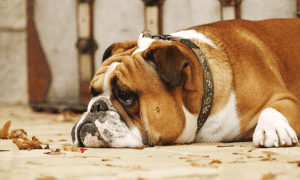“This post contains affiliate links, and I will be compensated if you make a purchase after clicking on my links.”
Losing a family member can feel unbearable. When that family member is a pet you’ve loved for years, the heartache is often indescribable. Pets play a huge role in people’s lives, and when a beloved pet dies, it can trigger a grieving process like no other.

The love and devotion many people have for their pets runs deep. Sometimes, this even goes to extremes, like a pet owner wanting their dog to be buried with them if they pass away. In most cases, though, if a dog dies, it’s important to understand that you’re allowed to grieve. You don’t have to “get over it” just because it’s an animal and not a person. You know your connection with your pet better than anyone, and allowing yourself time to process their death will make it easier to cope, in the long run.
You might feel as though you’ll never be able to move on. Maybe your pet died of natural causes or old age. Maybe the death was unexpected or caused by a sudden illness, like bloat. No matter the cause of death, it doesn’t make it easier to move on.
So, how can you? This article will focus on a few ways you can deal with the pain of losing your pet, and how you can begin the healing process to move on.
Talk About It
Again, losing a pet is like losing a family member. If you try to keep it all inside, you’ll never be able to work through the stages of grief in a healthy, effective way. One of the best things you can do is to talk about your pet the same way you might talk about someone’s life at a funeral. Share stories with your family, laugh about the happy times, and tell each other what you miss and what you remember.
Talk to anyone and everyone about your pet who will listen or who might be interested. If you find that you’re really struggling, consider opening up about the loss of your pet in a therapeutic setting. Keeping everything in can lead to symptoms of trauma, such as mood swings, irritability, or feelings of overwhelming sadness.
Talking to a counselor or therapy group about your loss can help you to accept the change and to keep going with your life. That doesn’t mean you’ll ever forget about your pet or stop missing them, but getting the initial shock and weight off of your chest can make a big difference.

Let Go of Your Guilt
One of the big differences between the death of a pet and the death of a person is that your furry friend can’t tell you what’s really going on with them. They can show physical symptoms of being sick sometimes, but not always. As they get older, they also can’t tell you if they’re in pain or struggling to do certain things.
If your animal dies, you might start to feel guilty, wondering if you should have done something else for them. Or maybe your guilt will stem from holding on for too long and allowing them to be in pain.
Letting go of your guilt, wherever it stems from, is hugely important when it comes to moving on. Take comfort in knowing that you gave your pet the best life you possibly could. Remember everything you did for them and the beautiful memories you have, whether it was throwing a doggie birthday party or taking your cat to a “kitty spa” for the day. Thinking about the good times you had with your pet and the good things you did for them will help to alleviate some of your guilt.
Take Your Time to Grieve
There isn’t a concrete timeline for getting over the death of your pet. Some people might think you should get over it quickly because it’s “just an animal.” But we can’t stress this enough: if that animal felt like a part of your family, you’re allowed to grieve that way for as long as you want.
Additionally, even after getting through the stages of grief, you don’t have to forget about your pet. That’s why many pet owners struggle with the idea of getting a new dog or cat after the death of one they loved so much. It can actually be therapeutic to bring a new animal into the home — not as a replacement but to share the love you still have in your heart with an animal that truly needs it.
The bottom line? Everyone grieves differently. The best things you can do to move on after the loss of a pet are to take your time, don’t let anyone pressure you into “getting over it” quickly and talk to someone about how you’re feeling. It’s up to you if you’d eventually like to get a new pet or not, but no matter what happens, it’s important to grieve in a way that works for you. If you allow yourself to do that, you’ll have an easier time moving on and looking back on memories of your pet fondly, instead of with sadness.
Jori Hamilton is a writer from the pacific northwest. You can follow her on twitter @Jori Hamilton and see more of her work at writerjorihamilton.contently.com.


















